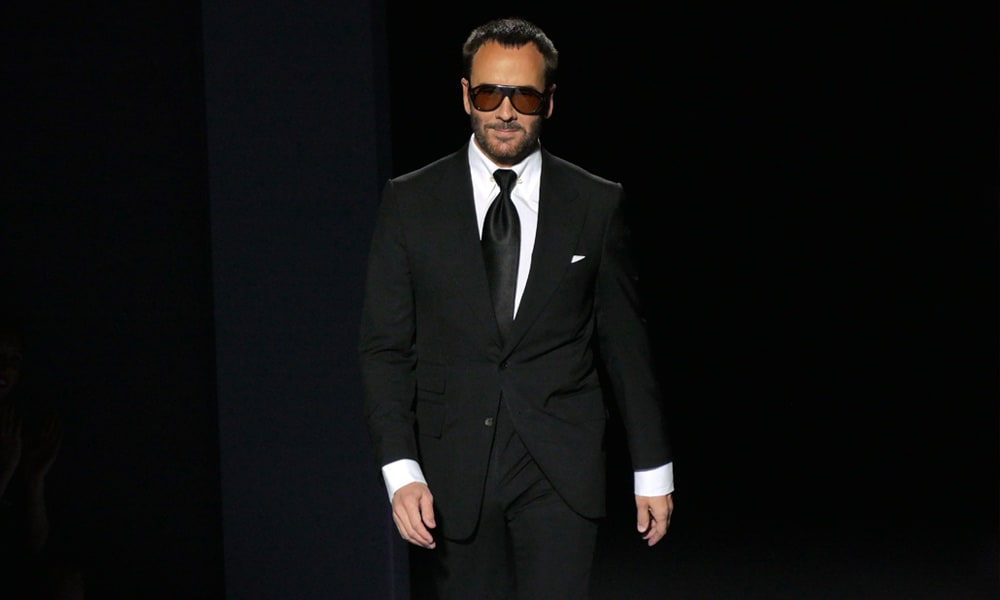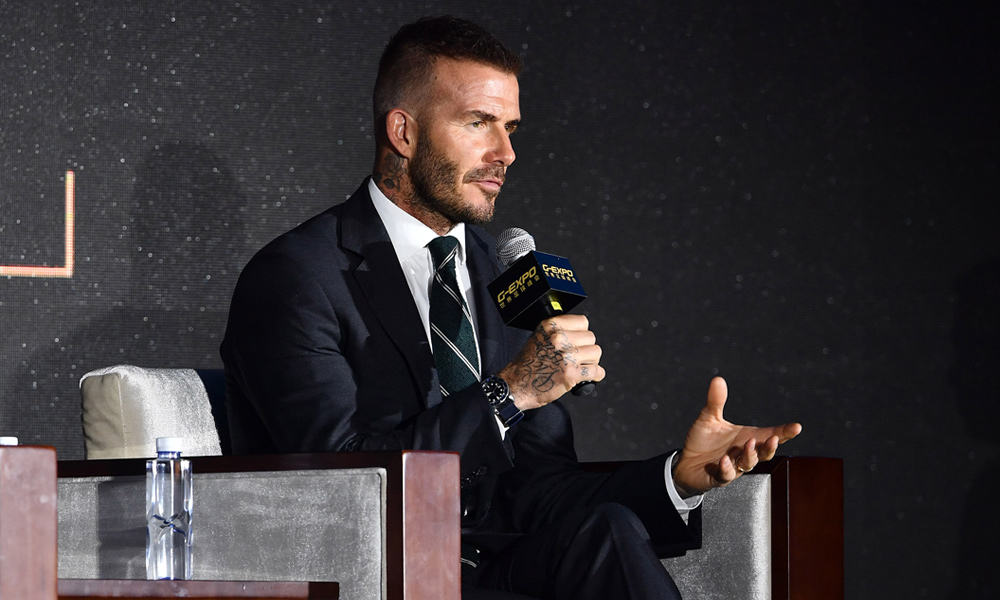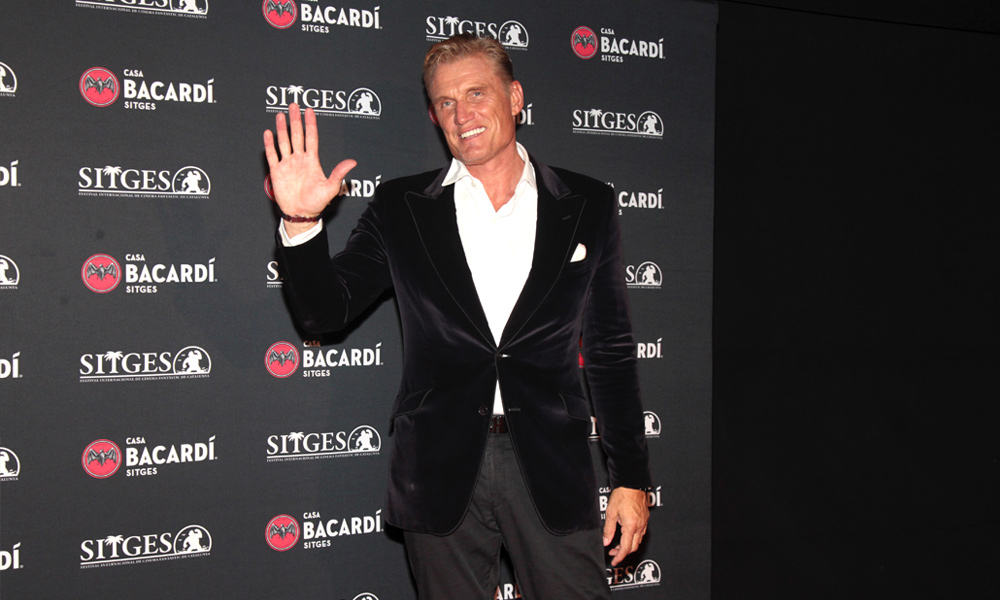The original Renaissance Man – “a person with many talents or areas of knowledge” if you ask the Oxford English Dictionary – was Leonardo da Vinci. Painter, sculptor, writer, scientist, inventor, engineer, mathematician, musician, anatomist, botanist, geographer, cartographer: Leonardo (‘da Vinci’ just means ‘from Vinci’) was the definition of well-rounded, the ultimate multi-hyphenate who came up with both the Mona Lisa and the helicopter, among other things.
Less famously, he was also in terrific nick. According to his Renaissance biographer Georgio Vasari, Leonardo’s “great strength could restrain the most violent fury, and he could bend an iron knocker or a horseshoe as if it were lead”. Thus he adhered to the Ancient Greek and Roman philosophy that a healthy mind should be housed in a corresponding body.
The idea of a Renaissance Man comes from Leonardo’s day when the revival of interest in classical thinking flourished in Italy, then spread across Europe and lasted until the 17th. The short version goes like this: you can do it all. And more than that you should do it all, or at least try. Embrace knowledge in all its forms and develop a skill set as broad as you can.
 Leonardo da Vinci and William Shakespeare were some of the earliest exemplars of the Renaissance Man
Leonardo da Vinci and William Shakespeare were some of the earliest exemplars of the Renaissance ManThe Blueprint For The Modern Man
Renaissance Man is not a term in common parlance today, for reasons both obvious and less so. In the modern world, we’re encouraged to specialize from an early age, narrowing down our school subjects even before we enter the jobs market and monomaniacally plough a lone furrow ever deeper. Mindful of becoming a jack of all trades, we silo ourselves in the hope of becoming master of one.
Having been out of fashion, there are indications though that the Renaissance Man may be undergoing something of a, well, renaissance. Today, though, he’s more likely to be termed a ‘polymath’ or an ‘expert-generalist’ – the latter term coined by Orit Gadiesh, chairman of management consultants Bain & Co, and defined by her as “someone who has the ability and curiosity to master and collect expertise in many different disciplines, industries, skills, capabilities, countries and topics”.
The reasons for the rebirth of the Renaissance Man are, like his skill set, manifold. But a significant one is that our definition of what it means to be a man today, Renaissance or otherwise, has expanded far beyond the archetypal three Ps of Protect, Procreate and Provide.
“The expectations for men have undergone such a dramatic change in such a short space of time, and it’s a pretty complex picture now,” says Tim Samuels, the Renaissance Man-sounding documentary maker, broadcaster, creative director and author of Who Stole My Spear? How To Be A Man In The 21st Century. “Many men still feel burdened by the age-old expectation to provide and define their identities through work, which is a real stress in today’s unpredictable and unfair economy. But at the same time, we’re becoming emotionally far more literate than ever before, which is great for being a hands-on father or supportive partner. So we’re a strange hybrid: emotionally literate cavemen.”
Unevolved Neanderthals, meanwhile, are deservedly in danger of extinction. “When we look back in 10 or 20 years, it will hopefully be seen as a watershed moment in our collective understanding of what it means to be a man in the 21st century,” speculates the New Masculinity Report published by trend forecasting agency The Future Laboratory. “The eruption of the #metoo movement in 2017 has shone an inescapable light on the damaging behavior many men exhibit towards women. Beyond finally holding these men to account, however, #metoo’s ultimate success has been to force society at large to address whether masculinity is inherently broken.”
 The #metoo movement has shone a light on the damaging behavior many men exhibit towards women
The #metoo movement has shone a light on the damaging behavior many men exhibit towards womenFrom Mad Men To Dad Men
It’s no longer sufficient for men to be strong and silent: they have to speak about their previously repressed emotions; as well as providing, they also have to be present. And they are, relative to what they used to be, at least. A 2016 study in the Journal of Marriage and Family found that men in 11 wealthy western countries now spend an average of 59 minutes a day engaged in childcare activities, up from an embarrassingly small 16 minutes in 1965.
“It’s hard to talk about ‘men’ as one homogenous mass,” says Samuels. “There are so many different versions of masculinity now. Some men are happy to emote, others will still run a mile from saying anything vulnerable. I was in the rust belt in America recently talking to blue-collar guys who’ve been ravaged by the collapse of industries and the spread of opioids, where there’s still a real sense of traditional masculinity in the air, even if it’s turned desperate and toxic. Just 30 miles away in the cities it’s all yoga and trans rights.
“So there’s no one size fits all. But I sense there is a general move towards men being more expressive and able to say and do things that would have been alien to their fathers and grandfathers.” That’s an expectation and responsibility, but also an opportunity – if we’re prepared to take it.
Women’s childcare hours have also gone up, from 54 minutes a day in 1965 to 104 today. Despite making up at least 40 percent of the workforce in 80 countries, according to the Pew Research Center, they’re still doing more than their fair share of family stuff – this despite some men having time on their hands.
The New York Times reported in 2010 that 82 percent of the layoffs triggered by the economic downturn were men, who were over-represented in hard-hit industries such as construction. But while women who became unemployed doubled the amount of childcare they clocked up, unemployed men barely increased theirs; instead, they prioritized looking for new jobs, plus slept and watched TV more.
 Men in wealthy western countries now spend an average of 59 minutes a day engaged in childcare activities, up from 16 minutes in 1965
Men in wealthy western countries now spend an average of 59 minutes a day engaged in childcare activities, up from 16 minutes in 1965Can We Move On?
Old core directives die hard: in a survey of 1,000 UK men by website The Book of Man, 79 percent of respondents agreed that old-school masculinity has to change, and 65 percent believe that stereotypes are dangerous to society. Yet just over half feel that they still need to conform to those alpha male stereotypes.
The 2017 Harry’s Masculinity Study, commissioned by the shaving brand and carried out by University College London, found that “the strongest predictor of mental positivity is job satisfaction”. Interestingly, men in London considered family less important than the rest of the UK, which tallies with the stereotype of city types as more career-driven.
Either way, work is clearly still fundamental to most men. Which leads to the first argument for being a Renaissance Man (or expert-generalist polymath). In a tumultuous job market, being able to turn your hand at different things gives you more options. With robots coming for jobs like the Terminator stalking Sarah Connor, by acquiring new skills you can hopefully future-proof yourself against obsolescence. And the World Economic Forum forecasts that one of the crucial skills for those men still left in the workplace by 2020 will be emotional intelligence or ‘EQ’, as The Future Laboratory’s report highlights.
But being a Renaissance Man isn’t just a mechanism for surviving: it’s a way of thriving. Insight and innovation often stem from seeing across different fields. Turtlenecked Apple founder Steve Jobs drew on his knowledge of design and even calligraphy to create products that weren’t even first in their respective categories, but that resonated far beyond those put out by any mere tech company.
More pragmatically, as business cartoonist Scott Dilbert illustrates and frequently discusses in interviews, not many people can stand out by becoming world-class at any one thing. Elite status is by its nature an exclusive club. But by being good at, or having knowledge of, two things that don’t often go together – business and cartoons, say – you can be a top dog in an underserved niche.
 According to a recent survey of 1,000 UK men, just over half still feel that they still need to conform to old-school masculine stereotypes
According to a recent survey of 1,000 UK men, just over half still feel that they still need to conform to old-school masculine stereotypesTime To Thrive
The evidence is more than anecdotal: academic studies show a link between ‘multiple-giftedness’, creativity and making it rain Nobel prizes. But professional and commercial imperatives aside, you owe it to yourself to become a Renaissance Man. By expanding your horizons, you’ll increase your memory and ward off cognitive decline. You’ll unseat prejudices and amp up empathy. (A broad mind is by definition not small.) You’ll be a hit at dinner parties. Irrespective and above of all of that, you’ll enjoy it.
But with traditional expectations to provide still extant and new ones like childcare on top, how exactly are you supposed to find time to master all these disciplines? (Not for nothing was being a Renaissance Man the preserve of the well-off.) “Great question,” says Samuels. “I think, in theory, it’s easier for men to ‘have it all’ than women as we instinctively have less guilt about not spending quite so much time with kids. But it’s so hard for either gender to strike that balance with today’s economy and lifestyles, especially in the big cities.
“You probably need real control over your work life so you can be flexible, not have a hierarchy or boss that saps your sense of self and have the time and energy to be a really present father, partner etc.”
Being a Renaissance Man can sound like a full-time job on top of the one you already have, if not several. But ask yourself honestly if you haven’t got a few thousand seconds a day that could be dedicated to something more edifying than scrolling Instagram or watching Love Island.
And to get all Buddhist for a minute, the point is not to achieve mastery in everything (which is a relief, because that’s impossible). It doesn’t matter if you suck at the guitar or can muster pidgin Spanish at most. What matters is that you try, which is also the only way you’ll get better. Self-improvement is a never-ending process. As a wise Renaissance Man probably said, in text against a stirring picture of a mountain or sunset, the journey is the destination.
6 Modern Day Renaissance Men
Barack Obama
Cast your mind back to a more enlightened era when US presidents displayed intelligence and humanity. “It’s a cliché, but Obama did seem to convey that he was a really devoted husband and father while managing to do the day job, pursue his ideals and squeeze in some sports-watching time,” says Samuels. As well as historically going into bat for millions of Americans without access to healthcare, Barry was also the first commander-in-chief to run a pick-up basketball game at the White House and, with his stonewash jeans and Asics sneakers, helped propagate the DILF (dads in latest fashions) trend.

Donald Glover
There’s another Donald in America with a diverse CV and a talent for making headlines, but let’s concentrate on the one everyone likes. Glover is a writer, actor, musician, comedian, producer, director, activist and father. He pinballs from one discipline to the next, gaining plaudits for every aspect of his work. (We also named him the best-dressed man in the world in 2017.) Glover credits his wide artistic output to an even wider set of influences.

Tom Ford
The fastidious Tom Ford studied art history at NYU but dropped out after a year to act in commercials; he eventually graduated from design school Parsons in architecture, although he also studied fashion in his final year. With just two years at clothing group Perry Ellis under his calfskin belt, he took the then-faltering

Elon Musk
Having established four companies in four disparate industries – Paypal (software and finance, so really two), Tesla (transport), SpaceX (er, space) and SolarCity (energy), the real-life Tony Stark should by rights be named ‘Elon Sweet Smell Of Success’. Asked how he’s able to grasp esoteric subjects such as rocket science, he replied, “I read books” – as many as two a day in his late teens. Musk taught himself to code at age 12 by building a computer game called Blastar which he sold for $500 and went on to earn degrees in economics and physics. He’s now worth $20bn.

David Beckham
It might seem counterintuitive to classify someone pilloried for his supposed lack of intelligence as a ‘Renaissance Man’. But David Beckham is not only a powerful influence on the way men look, but as a doting father unafraid to exhibit ‘feminine’ qualities (or clothes), how they act too. When so few sportsmen from these shores explore other cultures, he’s the first Englishman to win titles in four countries. Consider how he’s parlayed being good at football and photogenic – not unique characteristics – into enormous commercial success and cultural sway, then try and tell us that he’s not smart.

Dolph Lundgren
An ostensibly leftfield choice, but bear with us. No lunkhead, Lundgren won a Fulbright scholarship to study chemical engineering at the Big

How To Be A Renaissance Man
As Leonardo once said, “The noblest pleasure is the joy of understanding.” With that in mind, the quickest route to becoming a Renaissance Man is to take a leaf out of Warren Buffet’s book. Quite literally.
The billionaire investor spends five or six hours a day reading to beat the markets, so carve out at least one of yours to do the same, whether you spend it on ticking off a list of 100 great novels, or non-fiction such as Yuval Noah’s Sapiens or anything by pop-physicist Carlo Rovelli.
Audiobooks consumed while commuting or doing cardio totally count, as do documentaries or TED talks – assuming that you don’t drive to work, that is. Podcasts (try ‘Stuff You Should Know’, ‘99% Invisible’ or ‘Waking Up With Sam Harris’) are another great way to reclaim dead time. Many universities and other academic institutions also release podcasts of their lectures on iTunes U, so you can effectively take a course for free.
Or for some enlightenment IRL, enroll on a part-time degree. Sign up for a regular class in martial arts, life-drawing or both. Equally, you could volunteer, which is proven to help your own depression risk and blood pressure; teach yourself a language with an app such as Duolingo or incorporate exercise – a smart drug, antidepressant and fountain of youth rolled into one – into your schedule, no matter how busy. You’ll feel like a new man – of a different, more vital age.








